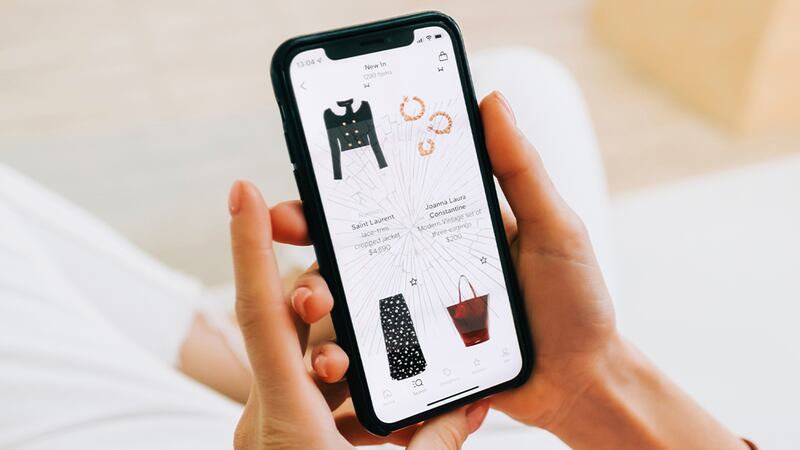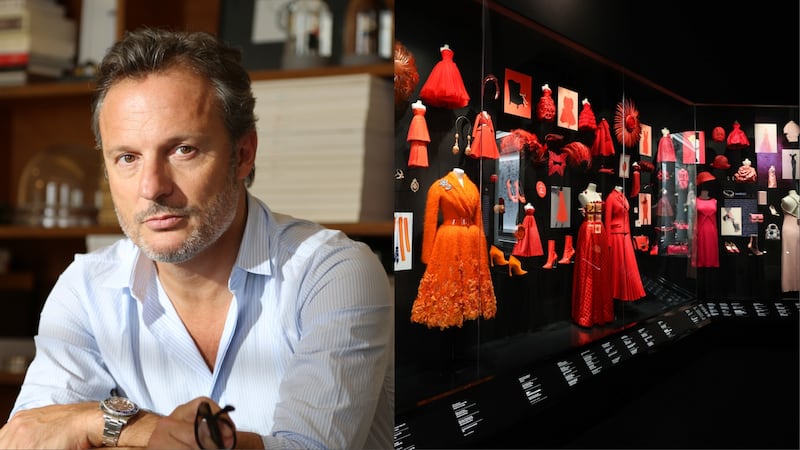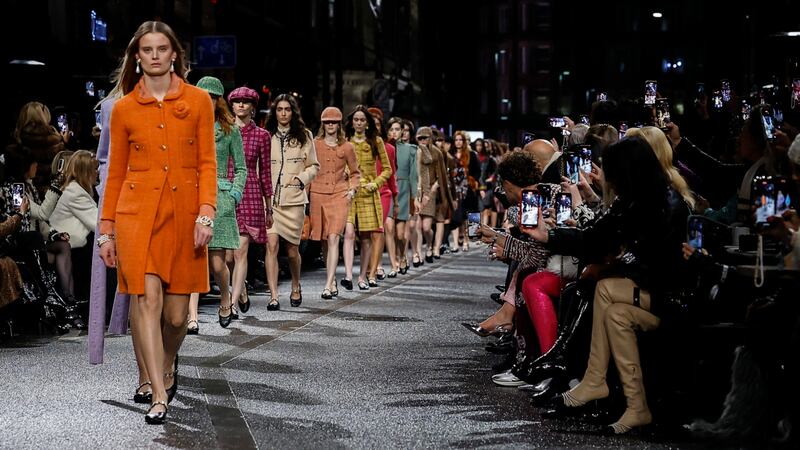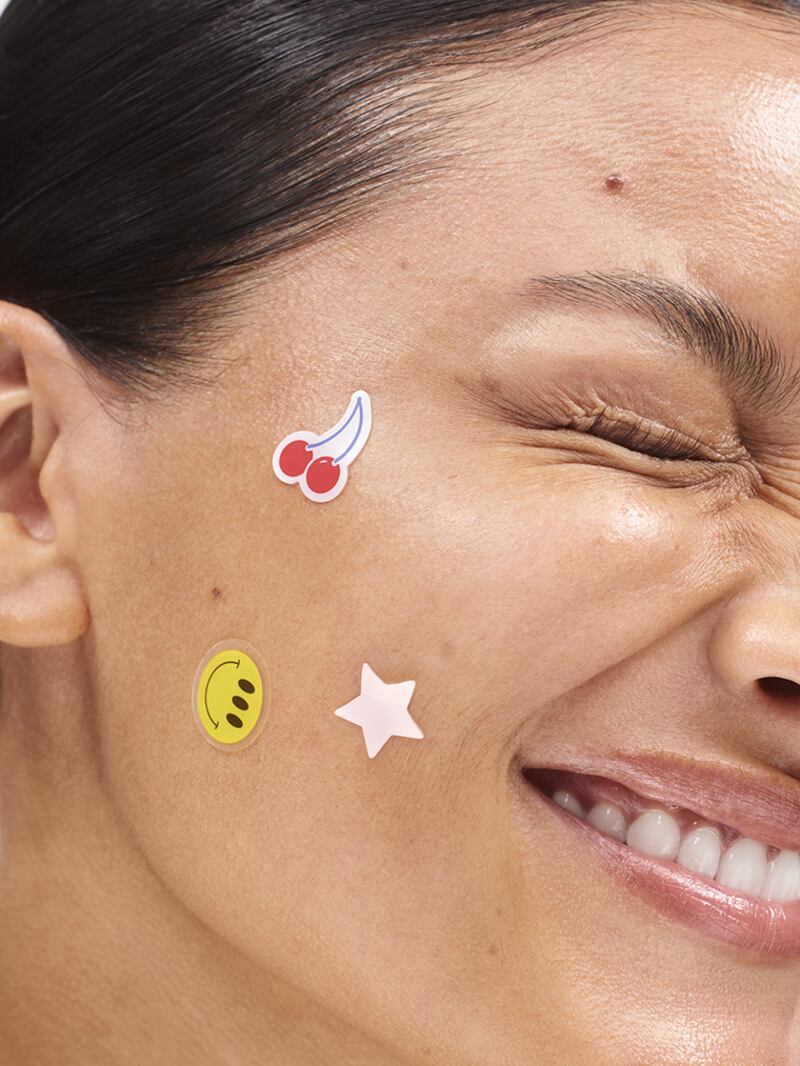
The Business of Fashion
Agenda-setting intelligence, analysis and advice for the global fashion community.

Agenda-setting intelligence, analysis and advice for the global fashion community.

LONDON — At the Fashion Awards at London’s Royal Albert Hall on Monday evening, there was one question on everyone’s minds: what’s really going on at Farfetch?
As the news flow gathered steam this week, the vacuum created by the company’s silence filled with speculation on what might happen next as the industry’s largest e-commerce platform, critical to the operations of hundreds of small- to medium-sized brands and multi-brand boutiques, is reportedly looking at strategic options to boost a weakened cash position, according to a report by BoF’s Malique Morris. Several Farfetch executives, including group president Stephanie Phair, were present at the Awards, but they remained tight-lipped about what is going down inside the company.
The drama began to play out on Nov. 28, when The Telegraph reported that founder José Neves was considering taking Farfetch private and the company abruptly cancelled an earnings announcement set to take place the next day. At first, the news sent Farfetch stock surging by more than 20 percent. But soon it became clear that the company’s results presentation was cancelled for more ominous reasons.
A single sentence in a statement released by Farfetch — “the company will not be providing any forecasts or guidance at this time, and any prior forecasts or guidance should no longer be relied upon”— made it plain that Farfetch had not met its own expectations for Q3.
ADVERTISEMENT
Then, Richemont, which in August announced a deal to spin off its loss-making Yoox Net-a-Porter unit in a joint venture with Farfetch, issued its own statement saying it “does not envisage lending or investing into Farfetch,” signalling that the deal, only recently approved by regulators in the EU, may be definitively off the table and that Farfetch would have to fend for itself. Afterwards, the platform’s stock plunged by more than 50 percent, briefly trading below $1 a share (at its peak in early 2021, shares traded above $70).
With Richemont out of the running, Farfetch partner Alibaba seems to be the only potential “white knight” likely to come to the rescue. Late Tuesday night, Farfetch issued a statement revealing that J. Michael Evans, president of the Chinese technology giant, had resigned from the Farfetch board stating that this “was in furtherance of the arm’s length commercial relationship between Alibaba Group Holding.”
Could this mean that Alibaba is considering a Farfetch takeover, and so Evans had to recuse himself from the board? Possibly, but Alibaba is fundamentally focused on the Chinese market where Farfetch has a relatively small presence and Alibaba’s hugely successful T-Mall operates a luxury platform called The Luxury Pavillion, which already serves up products from Farfetch and Yoox Net-a-Porter. On the surface, I don’t see much strategic rationale for Alibaba to do this deal, other than to protect its own business with Farfetch in China.
But what about Amazon? It was one of the options that came up in conversation with industry leaders this week. Amazon founder Jeff Bezos first set his sights on the fashion industry more than a decade ago. According to journalist Brad Stone’s The Everything Store, Bezos told employees back in 2007 that “in order to be a $200 billion company, we’ve got to learn how to sell clothes and food.”
The company has since made significant inroads into the mass fashion market with its Amazon Fashion unit, which has surpassed Macy’s and Walmart to become the largest apparel retailer in the United States, but has thus far struggled to gain traction in the luxury market.
Here’s why a Farfetch-Amazon deal would make sense.
1. It would vastly reduce Farfetch’s customer acquisition costs: While Amazon is not technically a luxury player, it already has relationships with millions of customers, including luxury consumers who value the convenience the platform offers and are likely subscribers to Amazon Prime. Farfetch is already the biggest luxury e-commerce player, but it could further tap into Amazon’s vast customer base to acquire new consumers at very low cost, bypassing Meta and Google, and thereby boosting the fashion platform’s chances of achieving profitability, which has remained elusive since the company’s founding in 2008.
2. It would boost Farfetch’s logistics and operations: Imagine the vast improvement in Farfetch delivery times and service — long a bug bear for many Farfetch customers — that Amazon’s world class logistical prowess could bring? All of the delivery options available to Amazon Prime customers would be a game changer for Farfetch.
ADVERTISEMENT
3. It would give Amazon a significant entree into luxury: Over the years, Amazon has invested substantial resources in trying to gain a foothold in luxury, from sponsoring the Met Gala to underwriting TV shows like Making the Cut. But the company’s attempts at targeting the luxury market, including Amazon Luxury Stores, modelled on Alibaba’s T-Mall Luxury Pavilion, have never gained traction. While Farfetch may be challenged, there is no doubting its dominant position in the fashion e-commerce sector and the value this could offer to Amazon.
4. Amazon and Farfetch are both “platform” businesses. Both Amazon and Farfetch are platform businesses. In fact, part of Neves’ vision for Farfetch from the beginning was to become the Amazon of luxury fashion. Both businesses are predicated on creating a tech-commerce platform accessible to a variety of players, from the smallest independent sellers and boutiques to the largest brands and businesses. Farfetch’s white-label Platform Services business would become even stronger bolstered by Amazon’s unrivalled technological infrastructure, akin to the infrastructure Alibaba provides to luxury and fashion brands in China.
Will such a deal come to pass? Who knows for sure, as so much of what is being said about Farfetch feels purely speculative. But the drama is far from over. It could be a very busy Christmas season for Farfetch’s lawyers and advisors as they navigate the bumpy terrain ahead.
Imran Amed, Founder, CEO and Editor-in-Chief, The Business of Fashion
P.S. BoF Insights is the new data and analysis thinktank from The Business of Fashion, providing unique advice to clients which combines the rigour of a strategy consultancy with the cultural awareness of a creative agency. In 2024, we will be growing the team. If you are a creative and analytical thinker, and passionate about the fashion, beauty and luxury industries, please submit your application here.
1. Why Online Luxury Is Broken. Reports of financial strain at Farfetch amid a stalled deal with Richemont have driven confidence in multi-brand e-commerce to all-time lows. With value propositions eroding and investment drying up, a way forward remains unclear.

2. Dior: How to Build a Long-Term Brand Image. Dior veteran Olivier Bialobos has balanced heritage, innovation and unprecedented scale while steering the brand’s communications through the tenures of several designers and three CEOs. ‘Desirability — not just visibility — has to be the target,’ he told BoF in The State of Fashion 2024.

3. Chanel + Manchester = Chanchester! ‘Chanel is never really new — it’s always Chanel,’ designer Virginie Viard tells Tim Blanks as she brings the French megabrand’s celebration of artisanal crafts to the UK’s second city.
ADVERTISEMENT

4. Gstaad Guy: Inside the Niche Social Media World of the 1%. For The State of Fashion 2024, trailblazing influencer Gstaad Guy’s online parodies of the ultra-wealthy highlights how a niche genre of influencer marketing is helping to inject newness into how brands connect with customers.

5. How to Build a Beauty Brand That Lasts for Generations. To build a business that lasts, brands must appeal to more than their original core demographic. Behemoths like Nike and Apple have done so — but makeup, skin care and hair lines have had less luck.

To receive this email in your inbox each Saturday, sign up to The Daily Digest newsletter for agenda-setting intelligence, analysis and advice that you won’t find anywhere else.
The company has continued to struggle with growing “at scale” and issued a warning in February that revenue may not start increasing again until the fourth quarter.
The British musician will collaborate with the Swiss brand on a collection of training apparel, and will serve as the face of their first collection to be released in August.
Designer brands including Gucci and Anya Hindmarch have been left millions of pounds out of pocket and some customers will not get refunds after the online fashion site collapsed owing more than £210m last month.
Antitrust enforcers said Tapestry’s acquisition of Capri would raise prices on handbags and accessories in the affordable luxury sector, harming consumers.